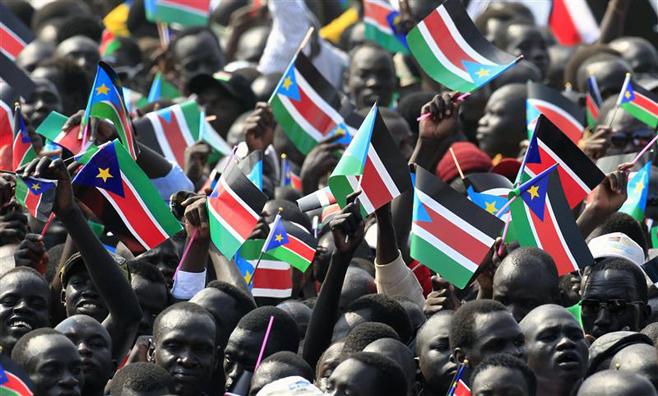African states should stand with the people of South Sudan
They should support the UN Commission’s vital work
Once again, this year, the UN Human Rights Council will consider two draft resolutions on South Sudan at its March session (HRC52). The first seeks to renew the mandate of the existing investigative mechanism, the Commission on Human Rights in South Sudan (CHRSS). The second focuses on technical assistance and capacity-building.
Let us be clear: no one will call for a vote on the latter — it will be adopted by consensus. But a vote will likely take place on the former. As in 2021 and 2022, we expect the resolution to pass. A comfortable margin, however, will go a long way in pushing the South Sudanese authorities to continue their cooperation with the CHRSS.
African states have a key role to play in this regard.
Last October, one African delegation (The Gambia) voted “Yes” to resolution 51/28 on the human rights situation in Burundi. After years in which the best civil society could expect of African states was Abstention on resolutions addressing human rights violations in Africa, this broke a taboo. It also showed that African citizens can get support from African states that prioritise human rights principles and objective criteria over political considerations. “African solidarity” should not come at any cost — and certainly not at the expense of justice and accountability.
The last report of the CHRSS documents egregious violations. Among the many testimonies the CHRSS gathered:
“Multiple witnesses and survivors described how women had been repeatedly subjected to sexual violence. In Unity State, women spoke to the Commission of experiencing rape and gang rape in 2013, 2016, 2018, 2021 and again in 2022.”
“One woman witnessed her 14-year-old daughter being shot and killed while hiding in the water. An elderly woman recounted nursing a gunshot wound through the night while standing in water up to her neck.” (paras. 33 and 69)
As the Council meets, tensions are rising in South Sudan. As a group of close to 100 NGOs wrote ahead of HRC52, “the conditions that prompted the HRC to establish the [CHRSS], in 2016, have not significantly changed to warrant less scrutiny . . . [V]iolence and impunity remain pervasive in the country, uncertainty over the constitution-making and electoral process is high, and South Sudanese civil society faces intensifying repression.”
Parties to the 2018 Revitalised Peace Agreement (R-ARCSS) agreed to extend the country’s transitional period by 24 months, until February 2025, but mounting political tensions point to a risk of relapse into full-scale conflict. Elections are due to take place in late 2024. As of today, there is no permanent Constitution, no electoral law, no electoral commission, and no census. Violence witnessed in Upper Nile can be considered pre-election violence.
In this context, African states should stand with the people of South Sudan. They can support the provision of advisory services to South Sudan, but they should make clear that what the country needs is, first and foremost, political will to put an end to grave human rights violations, combat impunity, and hold perpetrators to account.
This is not a foreign or “Western” agenda, but an African agenda. Chapter V of the peace agreement, with its focus on transitional justice and accountability, is IGAD- and African Union-supported. The African Commission on Human and Peoples’ Rights (ACHPR) re-emphasised its importance by adopting a resolution on South Sudan at its last session, in November 2022. Sustainable peace depends on the full implementation of the agreement.
In the absence of another mechanism tasked with collecting and preserving evidence of violations with a view to safeguarding prospects for future accountability (including through the Hybrid Court for South Sudan), African states should support the CHRSS. Abstention is a way of doing this. Voting “Yes” is even more powerful.
Hassan Shire
Executive Director, DefendDefenders
Chairperson, AfricanDefenders
Download this opinion piece in English.
Version française (en PDF) : « Les États africains doivent se tenir aux côtés du peuple sud-soudanais ».

